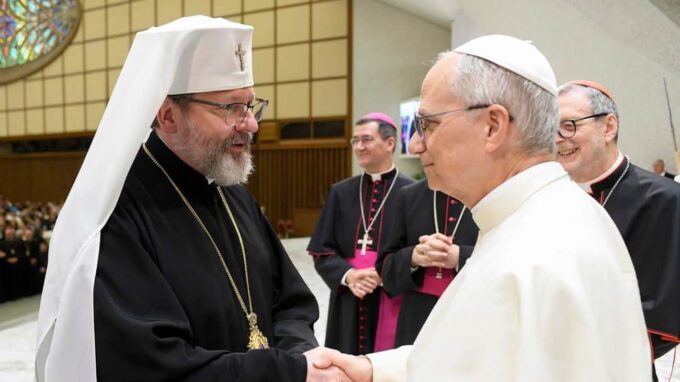Ukrainian prisoners of war received a special gesture of attention on the international stage: the transfer of lists of Ukrainian defenders held in Russian captivity took place directly with Pope Leo XIV

This significant event was the result of prolonged diplomatic efforts and became a symbol of support for the Ukrainian people in their armed struggle for independence and sovereignty. According to information received from the Coordination Headquarters on the Treatment of Prisoners of War, the meeting with the newly elected pope occurred with active assistance from the Ukrainian diplomatic mission at the Holy See, as well as the Sovereign Military Order of Malta, which has repeatedly acted as an intermediary in humanitarian affairs. It is known that representatives of the families of prisoners personally handed over documents containing lists of Ukrainian military personnel in Russian captivity. These lists were presented during the pope’s meeting with representatives of Christian communities of Eastern Catholic Churches, which, according to sources, comprised the largest group of participants. A special significance was given to this event by His Beatitude Sviatoslav, head of the Ukrainian Greek Catholic Church, who led the delegation of believers. He personally met with the pontiff, extending him sincere congratulations on his election to the throne of Peter. In response, Pope Leo XIV called for joint efforts to achieve the primary goal — establishing a just and lasting peace in Ukraine. His words sounded as a call to promote the release of all Ukrainian prisoners and the return of children home. After the meeting, Pope Leo XIV expressed his deep sympathy for the fate of the Ukrainian people, emphasizing that his heart is with those who suffer. In his speech, he urged the international community to do everything possible to achieve peace as soon as possible — a just and lasting peace. The pontiff’s remarks specifically highlighted the need to free all Ukrainian prisoners and to bring home the children currently in Russian captivity. This event received broad media coverage and became an important symbol of international support for Ukraine in its fight for its defenders. It emphasizes not only the humanitarian aspect of the issue of prisoners of war but also the global community’s desire to promote peace and preserve human lives even in the most difficult conditions of armed conflicts.

